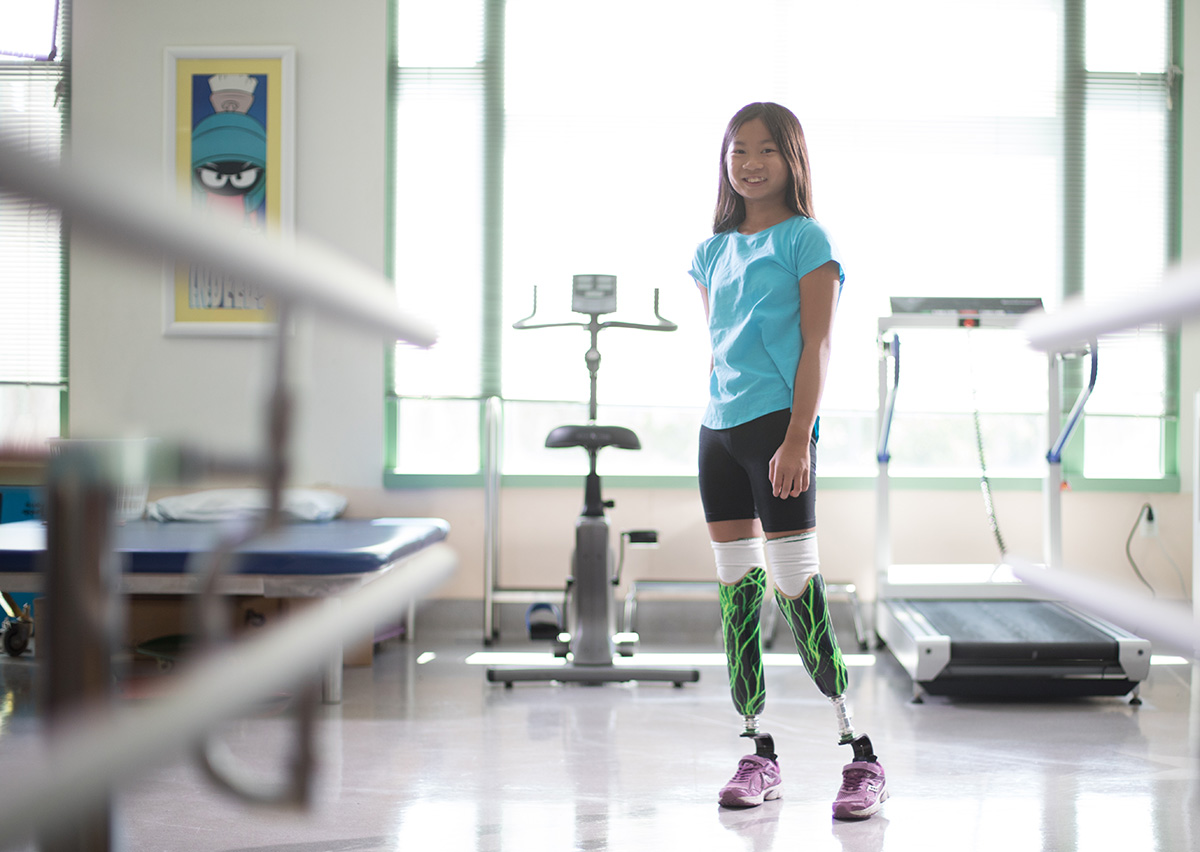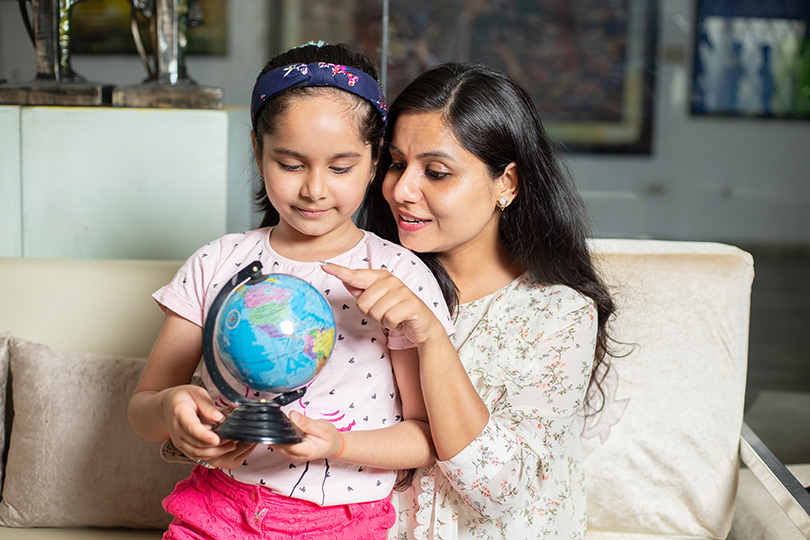Pediatric Rehabilitation
Shriners Children's pediatric rehabilitation and therapy services support your child physically, developmentally and emotionally.
Shriners Children’s provides comprehensive pediatric inpatient and outpatient therapies to improve your child’s function and quality of life, restore independence and promote physical healing. Depending on your child’s needs, your doctor may refer them to our rehabilitation department where our caring team will evaluate their skills based on their current function, age, and your concerns and goals. Based on the evaluation, your child’s therapist will make recommendations and develop a custom plan to ease the physical, developmental and cognitive (like thinking, knowing, remembering, judging and problem-solving) effects of their condition and allow them to reach their full potential.
Depending on your child's needs, rehabilitation and therapy could be in an outpatient setting or inpatient setting. Treatments typically occur in one of our state-of-the-art gyms or in a private room.
The team will work closely with you, providing practical advice and training along the way that can improve your child's progress during and after their time with us. Parents/caregivers are often incorporated into therapy sessions. Your presence can help tremendously; in addition to the trust they place in you, you're a member of your child's rehabilitation team and may need guidance to understand how to keep the plan in action at home.
The Shriners Children's pediatric rehabilitation services vary by location and may include the following. Talk to your physician or nurse about the therapies and programs that could be the right fit for your child's specific condition, needs and goals.
Physical Therapy
Physical therapy can improve the care and outcomes of many pediatric conditions. Our physical therapists work one-on-one with you and your child, teaching you safe methods of transporting/transferring your child and showing you exercises to increase your child's strength and mobility, and enhance their independence.
Physical therapy can also help improve your child's confidence by providing them with adaptive equipment, braces or prostheses and showing them the proper techniques for use. Whether your goal for your child is to learn to sit, stand or walk, improve their wheelchair skills or use new prostheses, our caring physical therapists can help them get there.
Occupational Therapy
Occupational therapy can help your child better participate in routine childhood activities, such as improving their hand skills or ability to get dressed, play, eat or attend school. Our occupational therapists may also provide your child with specialized equipment, like customized splints or braces, to help increase their independence as they learn to do more on their own.
Speech Therapy
Speech therapy can help your child improve communication and feeding/swallowing. Our speech therapists target all aspects of childhood and adolescent communication, including sound production, understanding language (reception), use of language (expression), alternate means of communication, memory and cognition, as well as the oral-motor control necessary for safe eating.
Recreational Therapy
Art therapy, aquatic therapy, pet therapy, music therapy and gardening are a few of the ways we use recreation to enhance your child's treatment plan and make the time they spend with us a little more fun. Our recreational therapists can also plan specific events and leisure activities that improve your child's health, functional abilities, independence and overall quality of life.
Child Life
Child life programs can reduce the stress created by a child's fears and misconceptions of hospitalization and medical procedures. Our therapists will teach your child coping skills through opportunities to play, learn and interact with others in a safe environment.
Outpatient and Intensive Day Treatment Programs
Some children require extensive rehabilitation but they don't need to stay with us. We've created outpatient programs just for them. Even if your child is not staying at one of our facilities, they can still participate in therapy with regularly scheduled outpatient visits, or half-day or full-day goal-directed therapy programs.
Inpatient Rehabilitation Care
Shriners Children’s inpatient rehabilitation units serve children and adolescents who require intensive rehabilitation and medical management due to neurological, musculoskeletal, orthopedic or other medical conditions following stabilization of their acute medical issues. Physiatrist-led interdisciplinary teams help your child recover from injury or loss of function. Physicians, physical therapists, occupational therapists, speech therapists, nurses, social workers and many other healthcare team members work with your child and family on personalized functional goals. All care is provided through a comprehensive, interdisplinary rehabilitation approach.
If your child has functional difficulties that have disrupted their development and ability to perform certain tasks, our inpatient rehabilitation units may be a good fit. To qualify, your child must be able to participate in intensive therapy and require physical or occupational therapy, as well as at least one other therapy service such as speech and language pathology. Our IRUs (inpatient rehabilitation units) are located at our Chicago, Philadelphia and Sacramento, California hospitals. For children and adolescents who, due to the complexity of their nursing, medical management and rehabilitation needs, require and can be expected to benefit from an inpatient stay, our IRUs provide invaluable care. Our interdisciplinary approach to the delivery of rehabilitation care fosters frequent, structured, and documented communication among all disciplines to establish, prioritize and achieve your child’s treatment goals. .
Specific treatments and services may vary by location. Please contact a specific location for more information
Understanding Your Child's First Pediatric Rehabilitation Appointment
Your child may meet with multiple people at their first visit, which is why our staff typically schedules your appointment with your doctor on the same day as your therapy appointment.
To help us better coordinate your child’s care, let us know if your child is currently receiving physical, occupational, and/or speech therapy services in any of the following settings:
- Early intervention
- School
- Home
- Outpatient facility
If so, please bring your child’s most recent therapy progress notes and their therapist’s contact information to the appointment. We value the input of your child’s therapist and consider them part of our care team.
Since our therapists will most likely need to assess your child's ability and mobility, they should wear comfortable clothing, such as a t-shirt, shorts or tennis shoes and bring any assistive device(s) they may currently use, or are no longer using due to growth or discomfort.
After your child's evaluation, your Shriners Children's therapist will develop a care plan for your child and share it with you. They'll also work closely with you to apply the necessary skills to help your child's progress at home.
The virtual reality headset was really helpful! If I was going into surgery or therapy, I would definitely want to use something like this to help me relax or help me get through anything that is physically or emotionally draining.
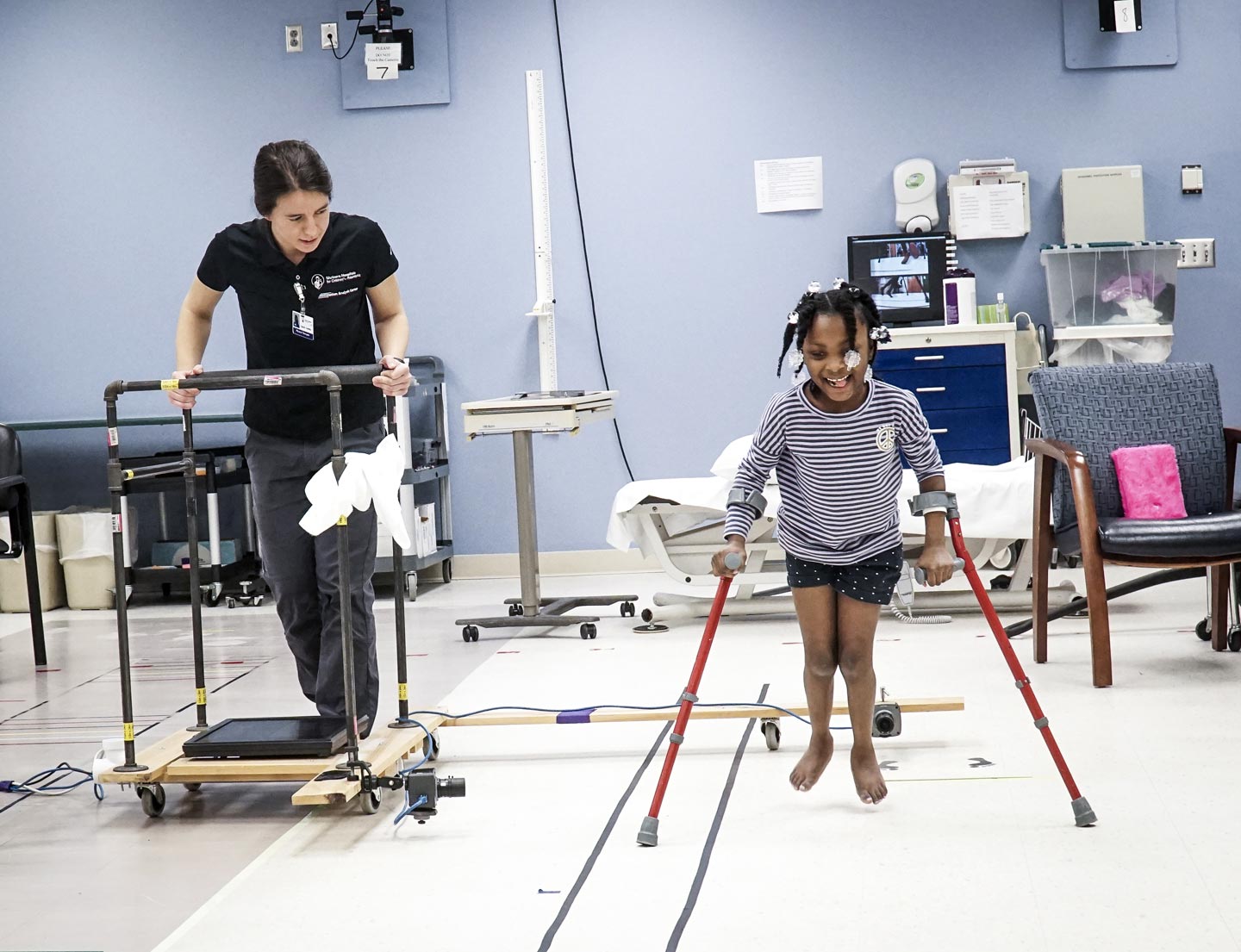
Measuring a Body in Motion
Conditions We Support
Conditions Supported by Pediatric Rehabilitation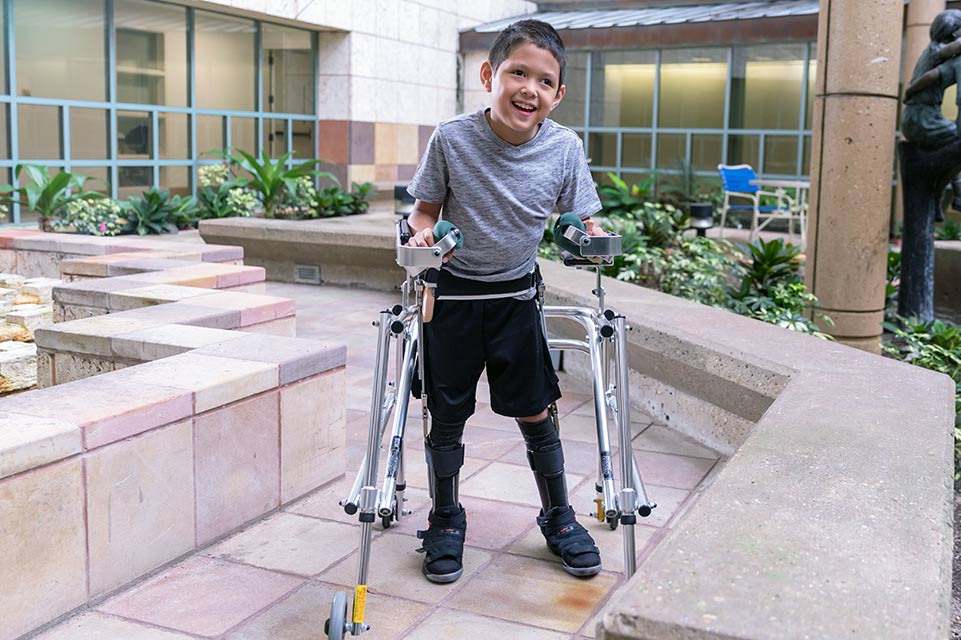
Spinal Cord Injury
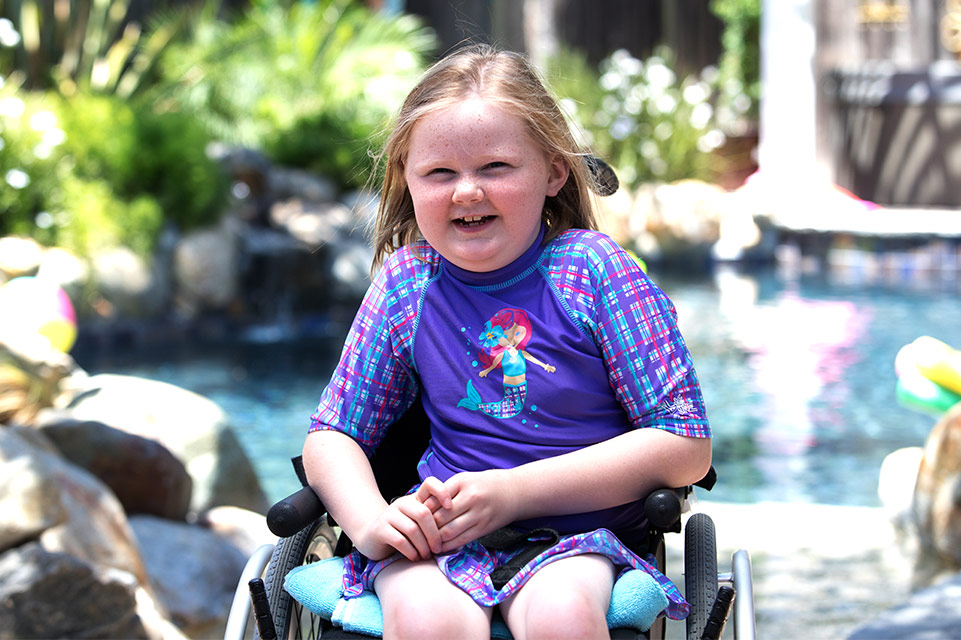
Erb's Palsy
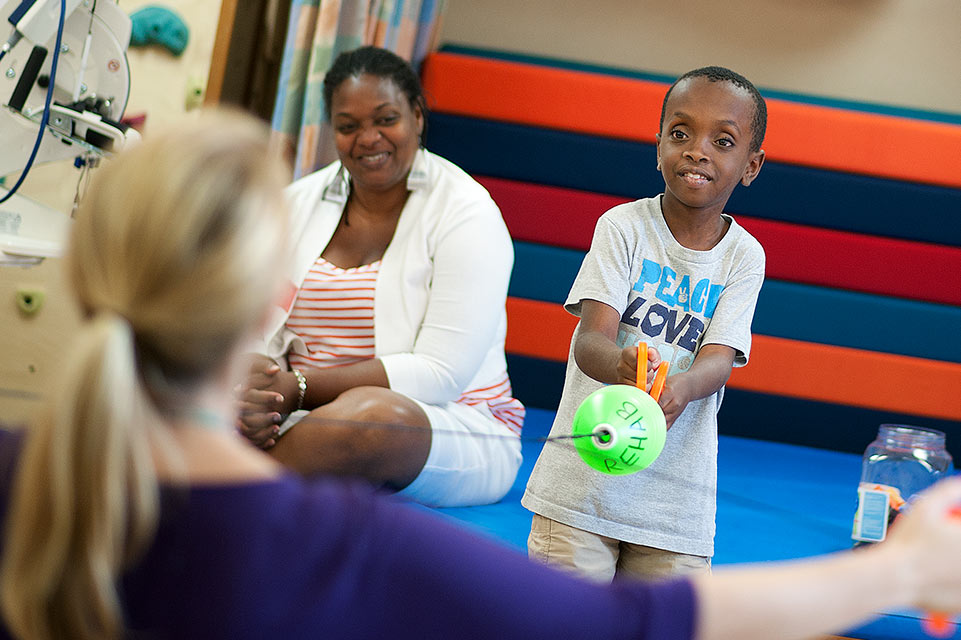
Arthrogryposis
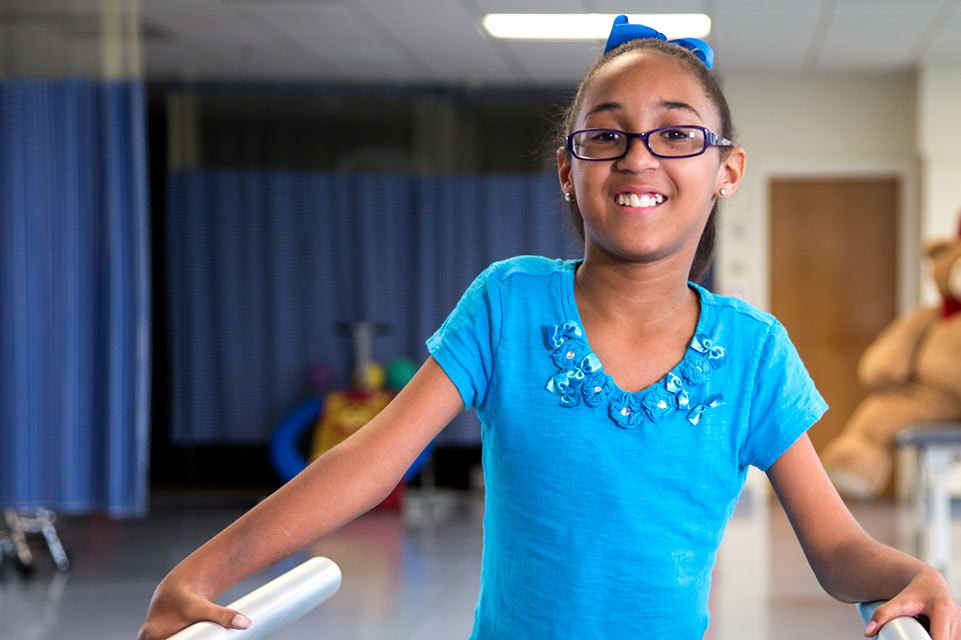
Limb Deficiencies
